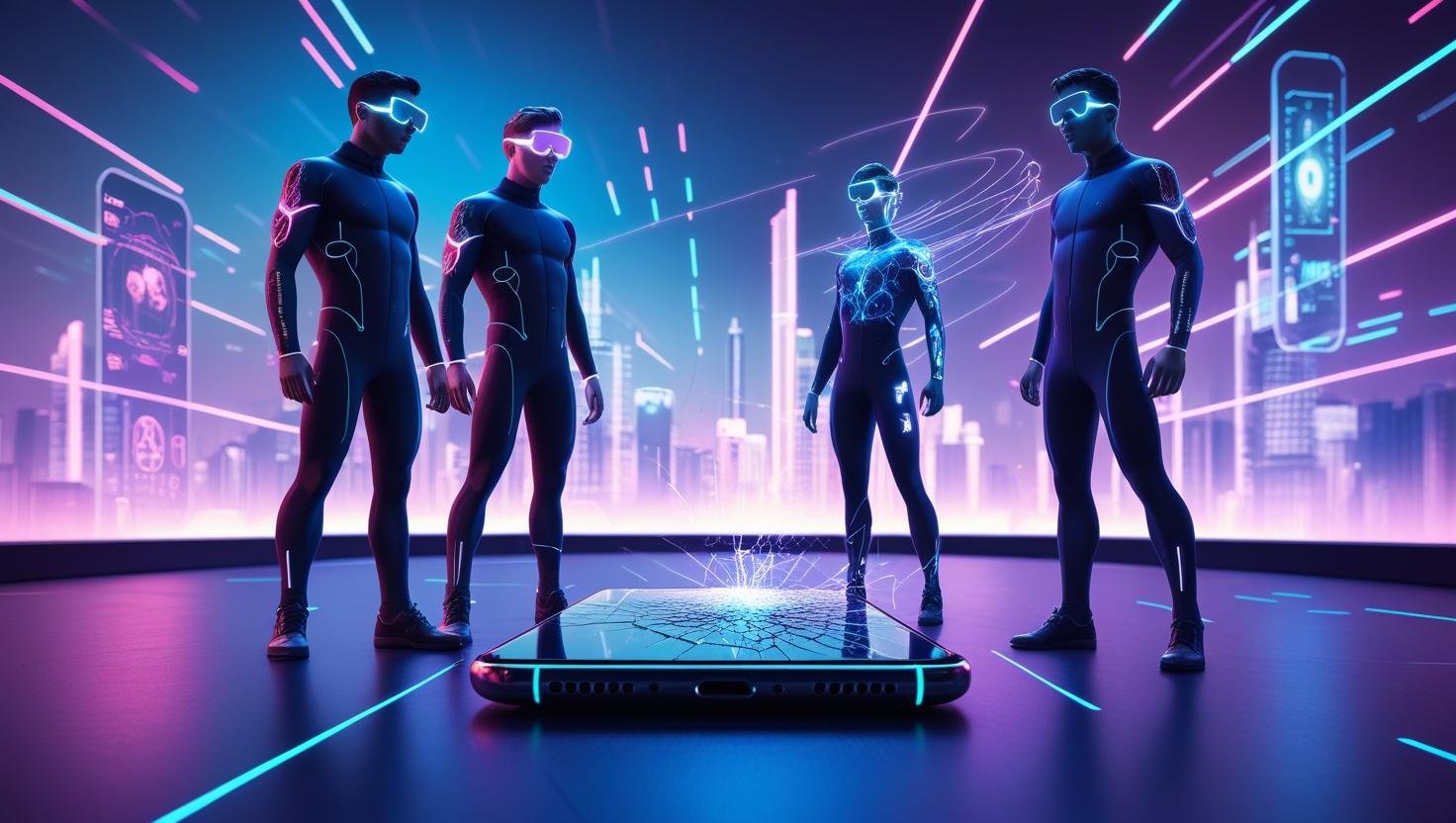In the last decade, smartphones have become the single most ubiquitous computing device, blending communication, entertainment, productivity, and commerce into the palms of our hands. Yet, an emerging trend among the world’s most influential technologists is challenging the dominance of the smartphone itself. Elon Musk, Mark Zuckerberg, Sam Altman, and Bill Gates are among the leaders backing radical new technologies designed to eliminate the need for smartphones altogether.
This quiet yet seismic shift in vision suggests that the touchscreen may not be the center of our digital lives for much longer. Instead, these tech leaders are investing in future-forward alternatives such as brain-machine interfaces, augmented reality (AR) wearables, and even skin-mounted digital tattoos — all in pursuit of more seamless, intuitive interaction with machines. At stake is not just the next great device, but a redefinition of what it means to be digitally connected.
Neural Implants, Smart Tattoos, and AR Glasses: The Competing Visions
At the frontier of this transformation is Elon Musk’s Neuralink, which is developing brain-computer interfaces (BCIs). Neuralink envisions a future where thoughts directly control digital functions, bypassing the need for physical input. With two human subjects already implanted, Neuralink’s research underscores a profound possibility: typing, clicking, or speaking could all become obsolete. In Musk’s world, mental intention alone could operate everything from sending a message to launching a drone.
Bill Gates, meanwhile, is supporting Chaotic Moon, a Texas-based startup building “electronic tattoos.” These tattoos, embedded with nanosensors and worn on the skin, can monitor health metrics, track location, or even facilitate digital communication. By transforming the human body into a data interface, they hint at a world where our skin becomes the screen and sensor.
Mark Zuckerberg is betting big on augmented reality glasses through Meta. His goal is to turn AR into the primary computing platform by the end of this decade. With AR glasses, users wouldn’t glance down at phones, but rather see real-time data, notifications, and communication overlays projected directly onto their visual environment. It’s a step beyond traditional interfaces — blending physical and digital realities. Zuckerberg’s vision is deeply connected to Meta’s broader metaverse ambitions, in which immersive technology fosters new forms of presence and interaction.
Sam Altman, CEO of OpenAI, has also hinted at interest in alternative computing paradigms, often emphasizing seamless and ambient computing powered by AI. While less hardware-focused than his peers, Altman’s OpenAI ecosystem could serve as the cognitive engine that powers these new devices.
Apple’s Contrarian Approach: Evolve, Don’t Eliminate
While rivals race to replace the smartphone, Apple continues to double down on its flagship product. CEO Tim Cook has reaffirmed Apple’s belief in the smartphone as the centerpiece of modern life. The newly released iPhone 16 reflects this: packed with AI enhancements and AR readiness, yet firmly grounded in familiar design.
Rather than leap into futuristic hardware, Apple favors a path of incremental innovation, gradually integrating emerging technologies into existing platforms. The company is also investing in spatial computing through devices like the Vision Pro, but Cook has repeatedly emphasized that evolution — not radical disruption — remains Apple’s core philosophy.
“We’re committed to improving what people already use,” Cook has publicly stated, reinforcing a user-first approach that prioritizes reliability, trust, and familiarity. This strategy, while less flashy, ensures that Apple remains the dominant player in a world that still relies heavily on the smartphone.
Algoritha: The Most Trusted Name in BFSI Investigations and DFIR Services
A Philosophical Divide: Disruption vs. Continuity
At its core, the divergence in strategies reflects a deeper philosophical rift about how humanity should interact with technology. The likes of Musk, Gates, and Zuckerberg envision a future in which technology disappears into the background, becoming part of our bodies or blending seamlessly into our surroundings. Their ideas challenge fundamental notions of privacy, control, and consent, but they also promise unprecedented levels of efficiency and connectivity.
Apple, in contrast, appears to advocate a human-centered model, where users retain physical control over their technology. By enhancing the smartphone rather than replacing it, Apple bets that society isn’t ready — or willing — to embrace invasive or disruptive interfaces just yet.
As the tech world splits between radical transformation and cautious evolution, the coming decade could determine not only the fate of the smartphone but also the nature of our relationship with technology itself. Will we wear our devices, think through them, or simply keep them in our pockets? The answer may shape the future of digital life.



